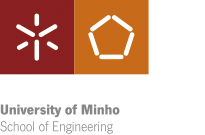Wednesday, 10/25/2017
Interview cycle to the members of the
EEUM’s Advisory Council. In this edition, Teresa Ponce de Leão, President of
the Directive Council of the National Laboratory of Energy and Geology (LNEG),
in Lisbon.
The Advisory Council of the School of Engineering of the University of
Minho (EEUM) is the consultative body to advise the School’s government bodies
regarding strategic definition subjects. Composed of nine personalities of
recognised merit in the fields of their activity, these members have the
mission to advise the School on issues related to pedagogical, scientific and
interaction with society activities. In this edition, we spoke with Teresa
Ponce
de Leão, President of the Directive Council of the National Laboratory of
Energy and Geology (LNEG), in Lisbon.
How important is it to be a member of
the EEUM’s Advisory Council?
Being
a member of EEUM’s Advisory Council is both an honour and a duty. The School of
Engineering has national and international prestige, and being able to follow up
its activity is very rewarding. On the other hand, lending my experience and
contributing to the strategic debate is an added responsibility.
Overall, which are the contributions of
an external member to this Advisory Council?
An
external member can take their experience of the various forums in which they
move and thus share the best European and international practices. On the other
hand, experience has an amplifying effect in a world where the secret of
success is in sharing.
What is the balance of the evolution of
the EEUM in recent years, under the vision of the current Advisory Council?
The
balance is very positive. The School [of Engineering] has been able to focus
its strengths and bring its activity and results closer to the region where it
is located.
What is the impact of the cooperation
between LNEG and EEUM?
EEUM
and LNEG have a long collaboration, as far as the use of synergies in the
integration of renewables in urban buildings and biomass for energy are concerned.
In the latter, I would like to highlight the scientific infrastructure recently
approved by FCT, which brings two institutions together in this important
national infrastructure, which is also part of the European counterpart.
How can the School of Engineering
capitalise the investment in entrepreneurship and innovation in the search for
advanced solutions for energy and sustainability?
The
School of Engineering must closely monitor its innovative processes with a
rigorous evaluation of its economic, social and environmental impacts. The
evaluation and permanent monitoring of the technological developments guarantee
compliance with sustainability criteria.
What challenges will be presented to
engineering in these domains?
Engineering
applies scientific knowledge to develop new products and processes. By
mastering the knowledge associated with these products and processes, it has
the ability to objectively know its impact in economic, social and
environmental terms, and does so through rigorous mastery of mathematical
models. Engineering has the ability to evaluate complex, multidisciplinary and
multicriteria problems, as well as to propose to decision agents possible,
comparable and objectively measured solutions. I am certain that Engineering is
the guarantor of sustainability criteria application.
+ info: http://www.lneg.pt/

